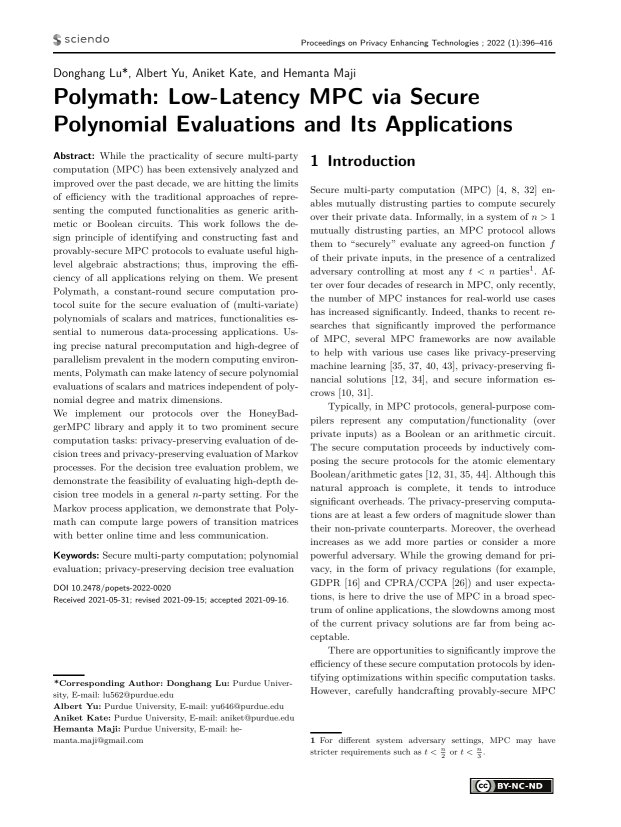Polymath: Low-Latency MPC via Secure Polynomial Evaluations and Its Applications
Authors: Donghang Lu (Purdue University), Albert Yu (Purdue University), Aniket Kate (Purdue University), Hemanta Maji (Purdue University)
Volume: 2022
Issue: 1
Pages: 396–416
DOI: https://doi.org/10.2478/popets-2022-0020
Abstract: While the practicality of secure multi-party computation (MPC) has been extensively analyzed and improved over the past decade, we are hitting the limits of efficiency with the traditional approaches of representing the computed functionalities as generic arithmetic or Boolean circuits. This work follows the design principle of identifying and constructing fast and provably-secure MPC protocols to evaluate useful highlevel algebraic abstractions; thus, improving the efficiency of all applications relying on them. We present Polymath, a constant-round secure computation protocol suite for the secure evaluation of (multi-variate) polynomials of scalars and matrices, functionalities essential to numerous data-processing applications. Using precise natural precomputation and high-degree of parallelism prevalent in the modern computing environments, Polymath can make latency of secure polynomial evaluations of scalars and matrices independent of polynomial degree and matrix dimensions. We implement our protocols over the HoneyBadgerMPC library and apply it to two prominent secure computation tasks: privacy-preserving evaluation of decision trees and privacy-preserving evaluation of Markov processes. For the decision tree evaluation problem, we demonstrate the feasibility of evaluating high-depth decision tree models in a general n-party setting. For the Markov process application, we demonstrate that Polymath can compute large powers of transition matrices with better online time and less communication.
Keywords: Secure multi-party computation; polynomial evaluation; privacy-preserving decision tree evaluation
Copyright in PoPETs articles are held by their authors. This article is published under a Creative Commons Attribution-NonCommercial-NoDerivs 3.0 license.


